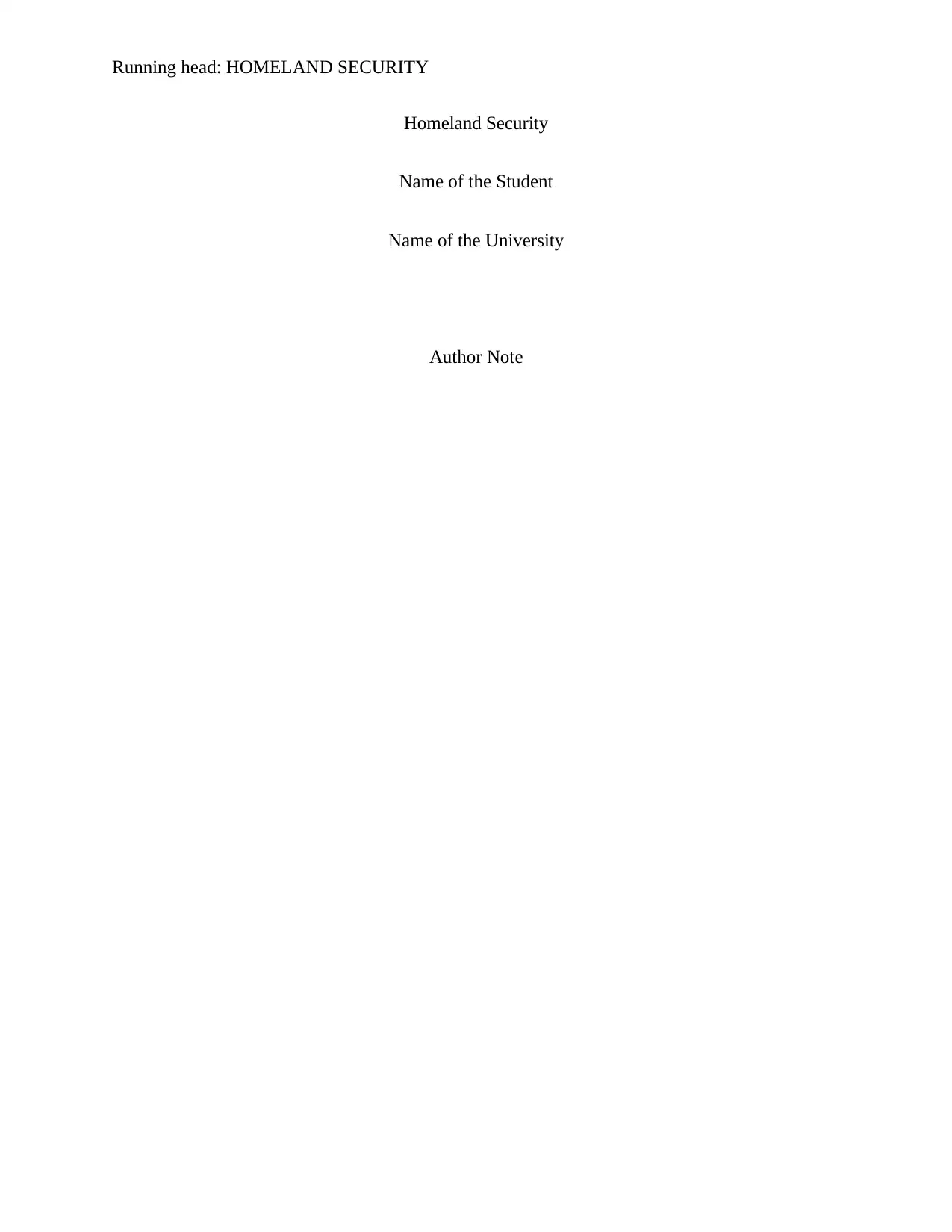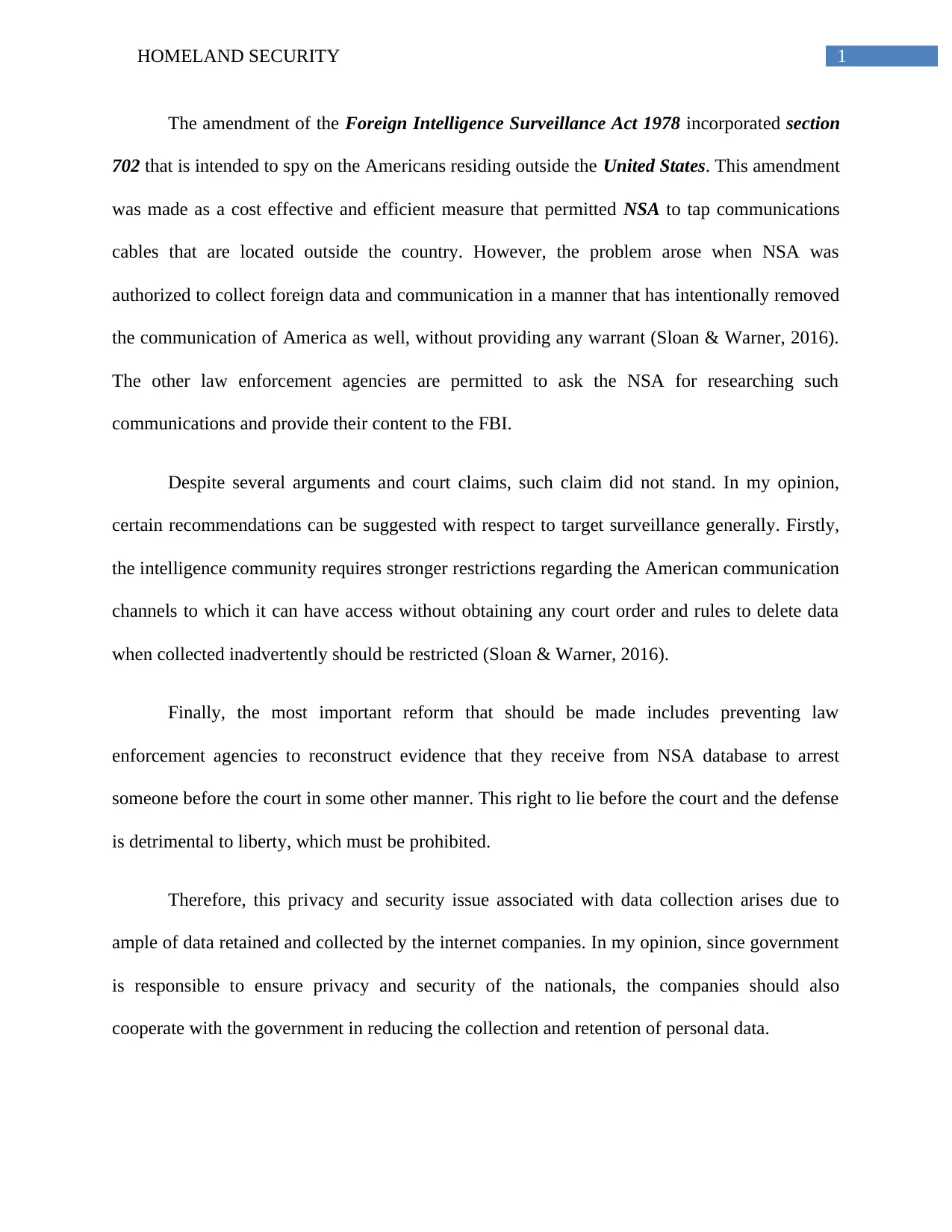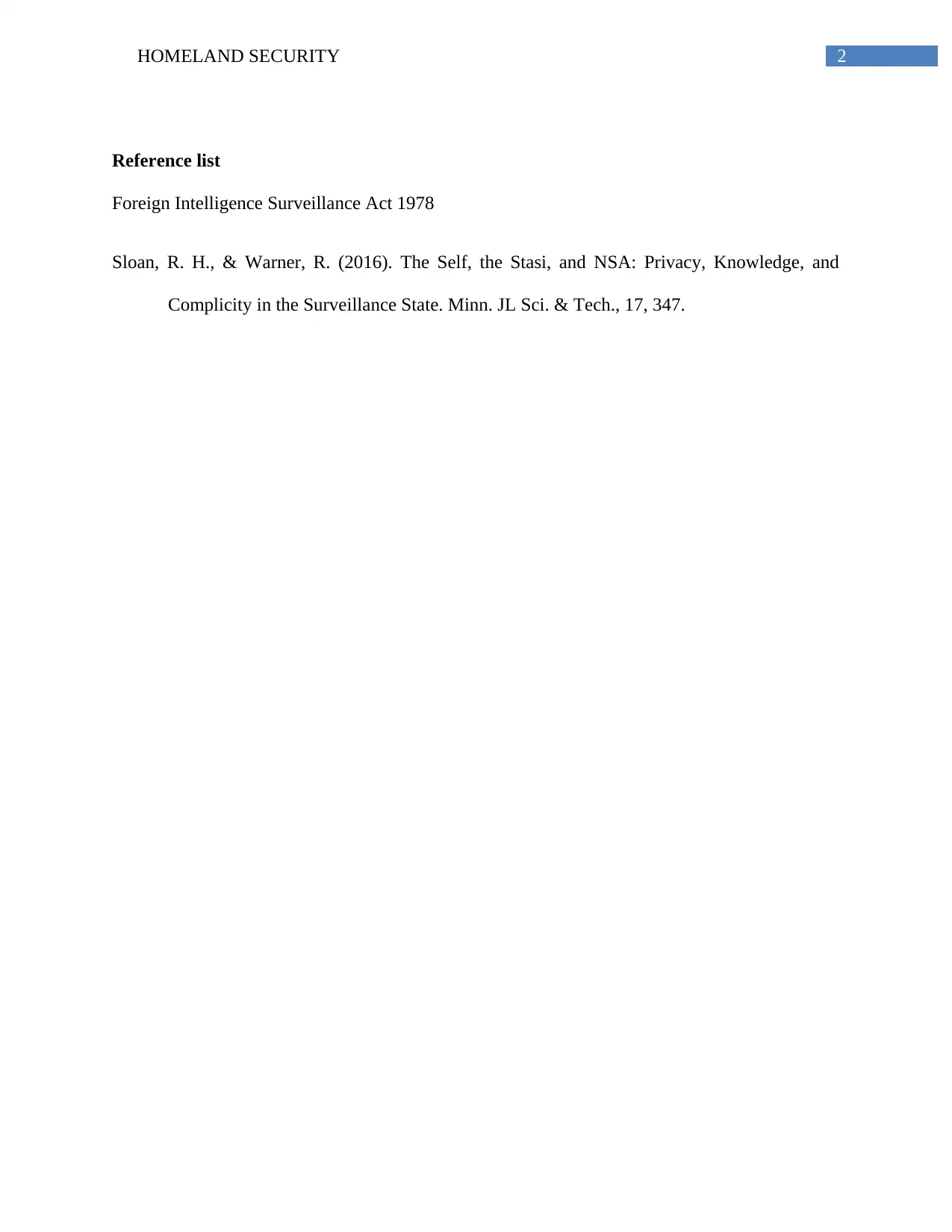Homeland Security: Examining Surveillance and Data Privacy Issues
VerifiedAdded on 2020/05/16
|3
|373
|149
Homework Assignment
AI Summary
This assignment analyzes the surveillance practices of Homeland Security, focusing on the Foreign Intelligence Surveillance Act (FISA) of 1978 and its amendments. The student examines how the act allows the National Security Agency (NSA) to collect data, including American communications, and the implications for data privacy. The assignment highlights concerns about the NSA's access to communication channels without court orders, the retention of data, and the use of this data by law enforcement agencies. The student suggests recommendations for reform, including stricter regulations on data collection, deletion of inadvertently collected data, and preventing the use of NSA-obtained evidence in court. The analysis emphasizes the role of both government and private companies in ensuring the privacy and security of personal data. The assignment concludes that government and companies should cooperate in order to reduce the amount of data collected and retained.
1 out of 3






![[object Object]](/_next/static/media/star-bottom.7253800d.svg)